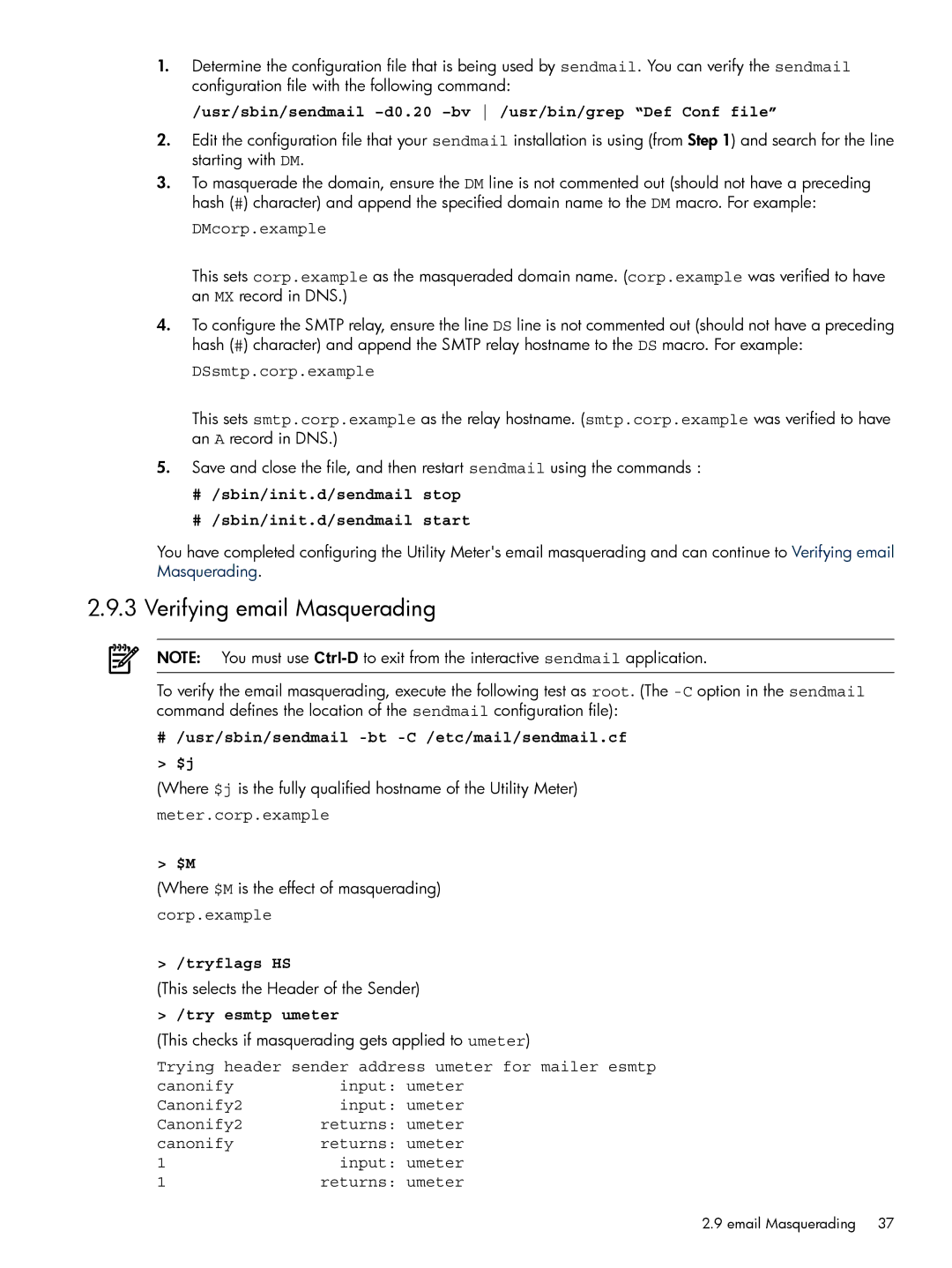1.Determine the configuration file that is being used by sendmail. You can verify the sendmail configuration file with the following command:
/usr/sbin/sendmail –d0.20 –bv /usr/bin/grep “Def Conf file”
2.Edit the configuration file that your sendmail installation is using (from Step 1) and search for the line starting with DM.
3.To masquerade the domain, ensure the DM line is not commented out (should not have a preceding hash (#) character) and append the specified domain name to the DM macro. For example:
DMcorp.example
This sets corp.example as the masqueraded domain name. (corp.example was verified to have an MX record in DNS.)
4.To configure the SMTP relay, ensure the line DS line is not commented out (should not have a preceding hash (#) character) and append the SMTP relay hostname to the DS macro. For example:
DSsmtp.corp.example
This sets smtp.corp.example as the relay hostname. (smtp.corp.example was verified to have an A record in DNS.)
5.Save and close the file, and then restart sendmail using the commands :
#/sbin/init.d/sendmail stop
#/sbin/init.d/sendmail start
You have completed configuring the Utility Meter's email masquerading and can continue to Verifying email Masquerading.
2.9.3 Verifying email Masquerading
NOTE: You must use
To verify the email masquerading, execute the following test as root. (The
#/usr/sbin/sendmail -bt -C /etc/mail/sendmail.cf > $j
(Where $j is the fully qualified hostname of the Utility Meter)
meter.corp.example
> $M
(Where $M is the effect of masquerading)
corp.example
> /tryflags HS
(This selects the Header of the Sender)
> /try esmtp umeter
(This checks if masquerading gets applied to umeter)
Trying header sender address umeter for mailer esmtp
canonify | input: umeter |
Canonify2 | input: umeter |
Canonify2 | returns: umeter |
canonify | returns: umeter |
1 | input: umeter |
1 | returns: umeter |
2.9 email Masquerading 37
